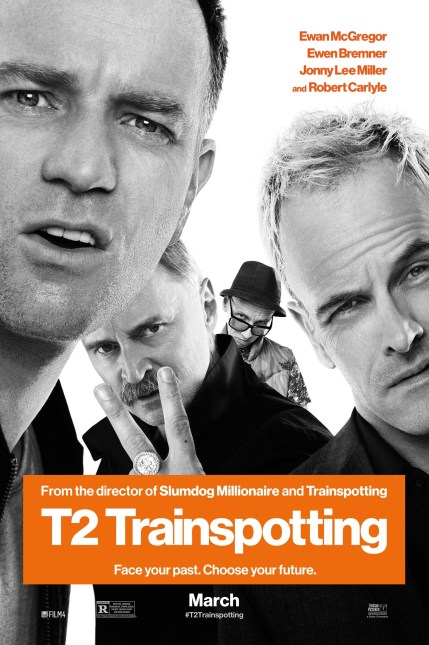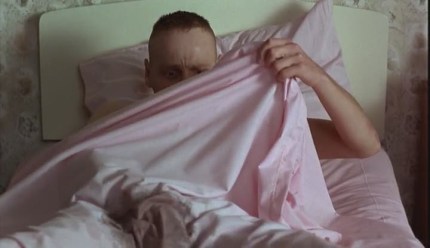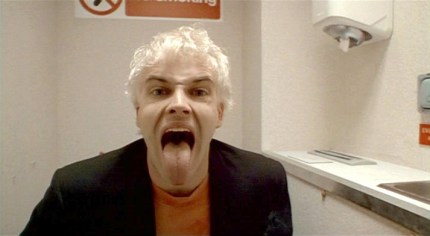 Today’s Cinema Adventure was originally published in
Today’s Cinema Adventure was originally published in
A little over two decades ago, though English director Danny Boyle had built a reputation in his native country with his work in theatre and his first movie had just won a BAFTA award, he was still an unknown quantity to the rest of the world. That changed when his second feature roared onto screens in 1996; immediately embraced by audiences and heralded by critics as a rebirth of Great British Cinema, it became an instant pop culture phenomenon, and suddenly his name was no longer as obscure as the quaint English pastime from which it drew its title.
That movie was, of course, “Trainspotting,” and twenty years later, thanks to its enduring popularity, it has gained iconic status. Now, at least partly for the same reason, it has also gained a sequel. Still, “T2: Trainspotting” is no mere effort at pandering to fans; Boyle, now an Oscar-winner and power player, has long spoken of a desire to revisit his breakthrough film because he felt there was still a story to be told. With the help of original screenwriter John Hodge, he has mined the source novel (by Irvine Welsh) and its follow-up, “Porno,” to flesh out that story, and re-enlisted the now-considerably-craggier original cast to bring it to life.
For those who need a refresher, “Trainspotting” followed the wild-and-wooly exploits of a cadre of young mates – Renton (“Rent Boy”), Daniel (“Spud”), Simon (“Sick Boy”), and Franco (“Begbie”) – as they tried to navigate life (and heroin addiction) in the economically depressed slums of Edinburgh. It ends with Renton leaving his friends behind in the squalor of their dead-end lives, as he escapes with the hope of building a better one for himself. “T2” rejoins them 20 years later, as he returns to make amends. Things aren’t much different, despite the intervening years. It’s as if time has stood still for these men, or rather they have stood still while time passed them by. Their world is still defined by the blight of poverty, and the oft-repeated catchphrase, “Choose Life,” seems as much a gilded lie as it was in their youth. And of course there are still the drugs, with their insidious allure, and the abdication of responsibility which comes with them. This time around, though, percolating under it all, are a host of long-buried conflicts- with each other and with themselves- which their reunion inevitably brings to the surface.
Boyle directed “Trainspotting” with the exuberant, visually engaging style which has marked his entire output. Driven by irreverent energy, it was in turn dizzyingly joyous and harrowingly dark, laced with absurdity and irony, and marked by a refusal to rely on the tropes of social realism. That same vision propels “T2”: it shares the same essential elements (arresting camerawork, bright colors, free-associative imagery, an edgy pop-music soundtrack), and adds a touch of self-referential humor to the mix (clever acknowledgment of the notoriously thick Scottish dialects, for instance, and several nods to the original’s iconic toilet scene). The new film unquestionably feels like a natural extension of the old- perhaps a bit more sophisticated, and maybe a bit mellower, but no less audacious.
The cast clearly relishes its chance to revisit these characters. Leading it, of course, is Ewan McGregor as Renton, bringing the same intelligence and good nature which allows us to like this character even when his choices strike us as questionable. The formidable Jonny Lee Miller is every bit his equal, managing to be somehow lovable as Sick Boy, the inept con artist on the other side of their precarious bromance. Ewen Bremner is again both comical and heartbreaking as Spud, and Robert Carlyle gives us a Begbie whose ferocity and haplessness have only been magnified by the passage of time. Finally, new addition Anjela Nedyalkova brings a complex blend of warm and cold- along with a fresh perspective- into the mix as Simon’s Bulgarian girlfriend, Veronika.
When a sequel appears to such a revered original, there is always a question of worthiness. The intervening years have added layers of resonance which help to make “T2: Trainspotting” a compelling two hours, and Boyle and company have certainly brought the same level of energy and expertise to the table. Its quality is undeniable. Is it a masterpiece of the caliber of its predecessor? Not quite. Does it add something essential to the story? Perhaps not. Nevertheless, any film as intelligent, superbly executed, and downright entertaining as this one will always be welcome- and that not only makes it necessary, but very worthy indeed.
































